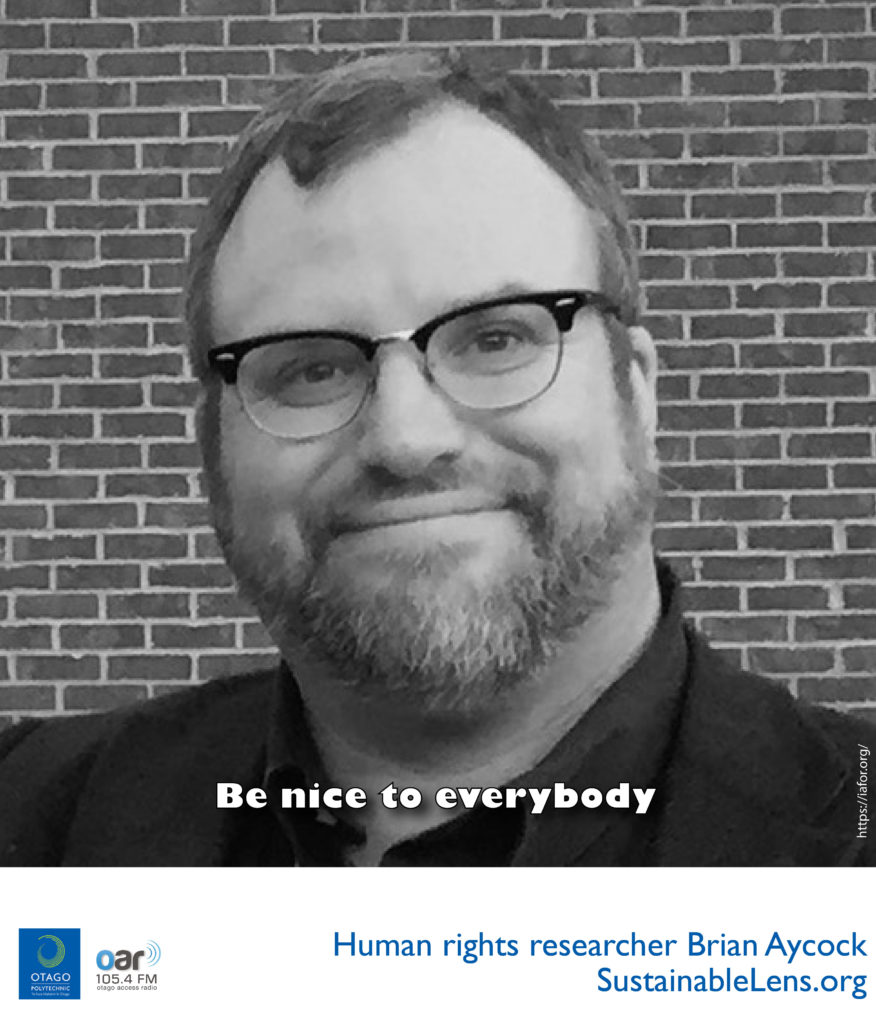
Now he is a human rights researcher, but as a young man Brian Aycock joined the military. He was sent to provide security for international war crimes investigations, including watching the uncovering of mass graves. Trained to dehumanise the situation he instead developed a strong empathy for the other and returned to study history and literature. He found community and connection in those who are activists in their daily lives, and a kinship with the downtrodden. He joined the Peace Corps and through genuine connections in places such as Malawi learnt his most important lesson – be nice to everybody. For Brian this means a respect for the other and indeed a breakdown of otherness. Returning to the US again he worked with poor and disenfranchised on a “get out the vote†campaign – learning much about the value of positive communications.
Further study in the UK in economics led to marriage in Japan and working on refugee resettlement programmes and from there to an MA in refugee law. He is now working for the International Academic Forum (IAFOR) in Japan, bringing people together in international cooperation of research and learning.  Â
We talk about the inequity of an international system that has globalised except for labour – privileging money and goods over human beings, and that we have failed to recognise that migration is at the heart of human security.
He is continuing to research refugee law, focusing on climate refugees. Brian argues that we urgently need an international framework for burden sharing for such environmentally displaced persons.
Definition: Solved before handed onto next generation.
Superpower: Kindness
Activist: Yes, if you’re not, you’re failing as a human. If you’re not doing anything, you’re letting life pass you by.
Motivation: Respect for human beings
Miracle: Seeing each other as humans – be kind to each other
Advice: Say hello to the people around you.Â
This conversation was recorded at Lingnam University in Hong Kong in November 2019.

